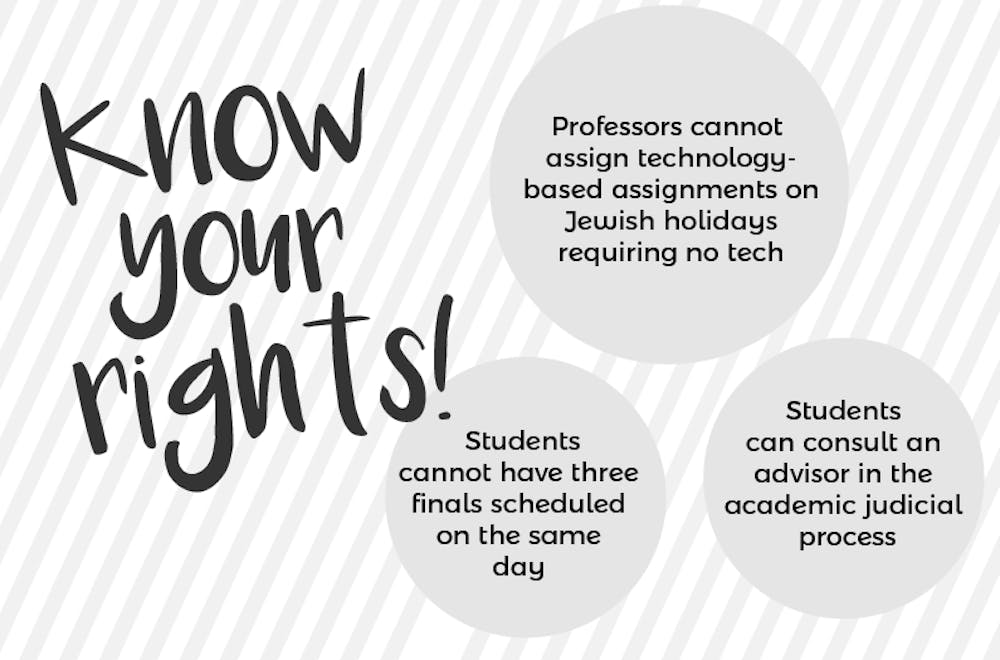The Undergraduate Assembly is working with the Student Committee on Undergraduate Education and the University Honor Council to create an Academic Know Your Rights campaign to help students understand when their academic rights are violated.
College senior and UA President Natasha Menon said the student government branches will create a document compiling all academic policies listed across different student handbooks from the four undergraduate schools by the end of February. Menon said she hopes the document will give students more clarity about their academic rights and what steps they should take if their rights have been violated.
Menon said she began the project last year after she heard that her classmates were confused about academic policies, including if professors were allowed to assign work during reading days and when professors can schedule exams.
Wharton sophomore and UHC member Lance Lunceford said that Penn’s academic policies are spread across many websites of the different schools or are buried deep in the handbook, making them difficult for students to find and know about.
“It's very hard to find unless you're searching it out,” College sophomore and UA representative Tori Borlase said.
Lunceford added that the archaic or complicated language of the policies can also prevent students from understanding their rights. The document will simplify the language without changing the meaning and link to the original policies for accuracy.
Borlase said that even when students know a professor might have violated their academic rights, they may not know how to proceed. She added that the resource will include what steps to take and who to speak with when professors violate student rights.
“I wanted to kind of create a campaign in which we're able to empower students with that information,” Menon said.
RELATED:
UA works with Penn Dining Advisory Board to fix excess meal swipe problem
UA drafts proposal to provide free chest binders for transgender students
Borlase added that in addition to academic rights, the final document will include sections on freedom of thought and expression and the judicial process for students accused of misconduct.

Lunceford said the document will help students understand their rights in the judicial process, which occurs when students are accused of violating the Code of Student Conduct through either an academic integrity violation, such as plagiarism, or misconduct. When students contest the charge, Lunceford said they have an opportunity to present their defense to a panel of professors and UHC members. Students can also consult an advisor who can be a faculty member or a director of an on-campus center, Lunceford added.
Wharton sophomore and UA associate member Michael Arther said some of the most frequently reported violations of academic rights came from test scheduling, such as when students have three finals scheduled on the same day and when exams conflict with religious holidays. Borlase added that she took a class last semester in which midterms were scheduled outside the normal class time and were not indicated on the syllabus, a violation of students' academic rights.
Arther also cited frequent violations regarding religious holidays, as some Jewish students cannot use technology on certain holidays. He added that both students and professors need to know that professors cannot assign work that requires technology on those days.
“It's been really cool to see student government work together to help students ourselves instead of waiting for someone else to do it for us,” Borlase said. “I hope that it can help people, even after I graduate.”









